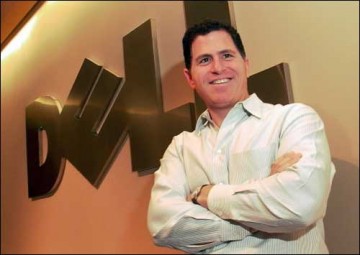 Now that it no longer has to worry about pesky shareholders, Michael Dell is changing its cunning plan and is moving up-market.
Now that it no longer has to worry about pesky shareholders, Michael Dell is changing its cunning plan and is moving up-market.
ITWorld has noticed that Dell is adding new hardware and software features that could make an otherwise mundane PC or tablet more attractive to customers. In a move which copies Apple, Dell hopes to establish a reputation as an innovator and establish a fan base among those who will pay more.
The example touted is Dell’s 8-inch Venue 8 7000 tablet, which made an appearance at the Intel Developer Forum, it’s the world’s thinnest tablet at 6 millimeters thick and includes Intel’s RealSense 3D depth-sensing camera. The camera can determine size, distance and contours of objects, which could enhance videoconferencing or make it easier to capture a 3D image for 3D printing. It is nicely designed, something that is not normally associated with Dell’s tin box image.
Kirk Schell, vice president of the commercial PC product group said that the privatization has helped tune out distractions and helped the company focus on improving products.
The upshot is that now Dell is not reporting to Wall Street, it can be more competitive and boast some industry firsts, such as bringing wireless charging capabilities to tablets with a dock for Venue 8.
Dell was among the first to introduce a 5K screen with the UltraSharp 27 Ultra HD, which can display images at a 5120 x 2880 pixel resolution and will become available later this year. Dell also has its own gaming console, the Alienware Alpha Steam Machine, which will compete against Microsoft’s Xbox One and Sony’s PlayStation 4. The Steam Machine ship in November with Windows 8.1 as the default OS. Users in the future will have the option to install the Linux-based SteamOS, which is being developed by Valve, the world’s largest independent game distributor.
Dell is likely to continue making low-cost PCs, at least in the short term, but it seems that its interest is moving away from that market.
It is investing in architects, human factor engineers, material scientists, software people. You can and should differentiate, Schell said.





